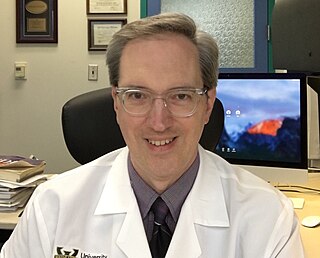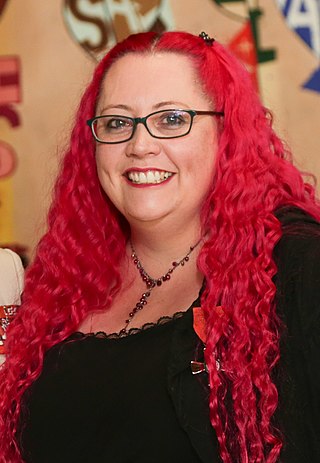
Naturopathy, or naturopathic medicine, is a form of alternative medicine. A wide array of practices branded as "natural", "non-invasive", or promoting "self-healing" are employed by its practitioners, who are known as naturopaths. Difficult to generalize, these treatments range from the pseudoscientific and thoroughly discredited, like homeopathy, to the widely accepted, like certain forms of psychotherapy. The ideology and methods of naturopathy are based on vitalism and folk medicine rather than evidence-based medicine, although practitioners may use techniques supported by evidence. The ethics of naturopathy have been called into question by medical professionals and its practice has been characterized as quackery.

Quackery, often synonymous with health fraud, is the promotion of fraudulent or ignorant medical practices. A quack is a "fraudulent or ignorant pretender to medical skill" or "a person who pretends, professionally or publicly, to have skill, knowledge, qualification or credentials they do not possess; a charlatan or snake oil salesman". The term quack is a clipped form of the archaic term quacksalver, derived from Dutch: kwakzalver a "hawker of salve" or rather somebody who boasted about their salves, more commonly known as ointments. In the Middle Ages the term quack meant "shouting". The quacksalvers sold their wares at markets by shouting to gain attention.
Apitoxin or bee venom is the venom produced by the honey bee. It is a cytotoxic and hemotoxic bitter colorless liquid containing proteins, which may produce local inflammation. It may have similarities to sea nettle toxin.

Michael Thomas Osterholm is an American epidemiologist, Regents Professor at the University of Minnesota School of Public Health, and director of the Center for Infectious Disease Research and Policy at the University of Minnesota.

Paul Allan Offit is an American pediatrician specializing in infectious diseases, vaccines, immunology, and virology. He is the co-inventor of a rotavirus vaccine. Offit is the Maurice R. Hilleman Professor of Vaccinology, professor of pediatrics at the Perelman School of Medicine at the University of Pennsylvania, former chief of the Division of Infectious Diseases (1992–2014), and the director of the Vaccine Education Center at the Children's Hospital of Philadelphia.
The New England Skeptical Society (NESS) is an American organization dedicated to promoting science and reason. It was founded in January 1996 as the Connecticut Skeptical Society, by Steven Novella, Perry DeAngelis and Bob Novella. The group later joined with the Skeptical Inquirers of New England (SINE) and the New Hampshire Skeptical Resource to form the New England Skeptical Society.

Steven Paul Novella is an American clinical neurologist and associate professor at Yale University School of Medicine. Novella is best known for his involvement in the skeptical movement as a host of The Skeptics' Guide to the Universe podcast and as the president of the New England Skeptical Society. He is a fellow of the Committee for Skeptical Inquiry (CSI).
Blood stasis (BS) is a concept in traditional Chinese medicine (TCM), described as a slowing or pooling of the blood due to a disruption of heart qi. Blood stasis is also described by practitioners of TCM in terms of yin deficiency, qi deficiency and qi stagnation. For non-practitioners of TCM it is sometimes explained in terms of hematological disorders such as hemorrhage, congestion, thrombosis or local ischemia, and in terms of tissue changes. TCM practitioners believe it is an important underlying pathology of many disease processes despite the fact that objective, consistent methods for measuring the presence of blood stasis syndrome are not readily available. Blood stasis is associated with justifications for acupuncture and herbal treatments.
Functional medicine (FM) is a form of alternative medicine that encompasses a number of unproven and disproven methods and treatments. It has been described as pseudoscience, quackery, and at its essence a rebranding of complementary and alternative medicine. In the United States, FM practices have been ruled ineligible for course credits by the American Academy of Family Physicians because of concerns they may be harmful.

Rhys Morgan is a consumer watchdog, science activist, and health blogger from Wales who first received acclaim in 2010 when, at the age of 15, he played a key role in raising awareness of the health risks of Miracle Mineral Supplement. Morgan brought attention to the fact that the product contained bleach and was being illegally marketed as a "miracle" cure, which prompted a consumer warning across the European Union and earned Morgan a James Randi Award for Grassroots Activism.

David Henry Gorski is an American surgical oncologist and professor of surgery at Wayne State University School of Medicine. He specializes in breast cancer surgery at the Karmanos Cancer Institute. Gorski is an outspoken skeptic and critic of alternative medicine and the anti-vaccination movement. He writes as Orac at Respectful Insolence and as himself at Science-Based Medicine, where he is the managing editor.

Science-Based Medicine is a website and blog with articles covering issues in science and medicine, especially medical scams and practices. Founded in 2008, it is owned and operated by the New England Skeptical Society, and run by Steven Novella and David Gorski.

The Friends of Science In Medicine (FSM) is an Australian association which supports evidence-based medicine and strongly opposes the promotion and practice of unsubstantiated therapies that lack a scientifically plausible rationale. They accomplish this by publicly raising their concerns either through direct correspondence or through media outlets. FSM was established in December 2011 by Loretta Marron, John Dwyer, Alastair MacLennan, Rob Morrison and Marcello Costa, a group of Australian biomedical scientists and clinical academics.

Rachael Anne Dunlop, popularly known as Dr. Rachie, is an Australian medical researcher and skeptic. She is a postdoctoral fellow in cell biology at the University of Technology Sydney.
The Northeast Conference on Science and Skepticism is a four-day conference focusing on science and skepticism founded in 2009 and held annually in New York City. NECSS is jointly run by the New York City Skeptics (NYCS) and the New England Skeptical Society (NESS). The Society for Science-Based Medicine joined as a full sponsor of the conference in 2015. As of 2016, attendance was estimated at approximately 500 people.

Britt Marie Hermes is an American former naturopathic doctor who became a critic of naturopathy and alternative medicine. She is the author of a blog, Naturopathic Diaries, where she writes about being trained and having practiced as a licensed naturopath and about the problems with naturopaths as medical practitioners.

Siouxsie Wiles is a British microbiologist and science communicator. Her specialist areas are infectious diseases and bioluminescence. She is based in New Zealand.

John Michael Dwyer, is an Australian doctor, professor of medicine, and public health advocate. He was originally a Professor of Medicine and Paediatrics, then Head of the Department of Clinical Immunology at Yale University. Returning to Australia, he became Head of the Department of Medicine and the Clinical Dean at the University of New South Wales and Director of Medicine at Sydney's Prince of Wales Hospital, the University's major teaching hospital, for over twenty years. In retirement he is an Emeritus Professor of Medicine of the University. He founded the Australian Health Care Reform Alliance, and was the founding president of the Friends of Science in Medicine until 2019. He was appointed an Officer of the Order of Australia for his service to public health.















